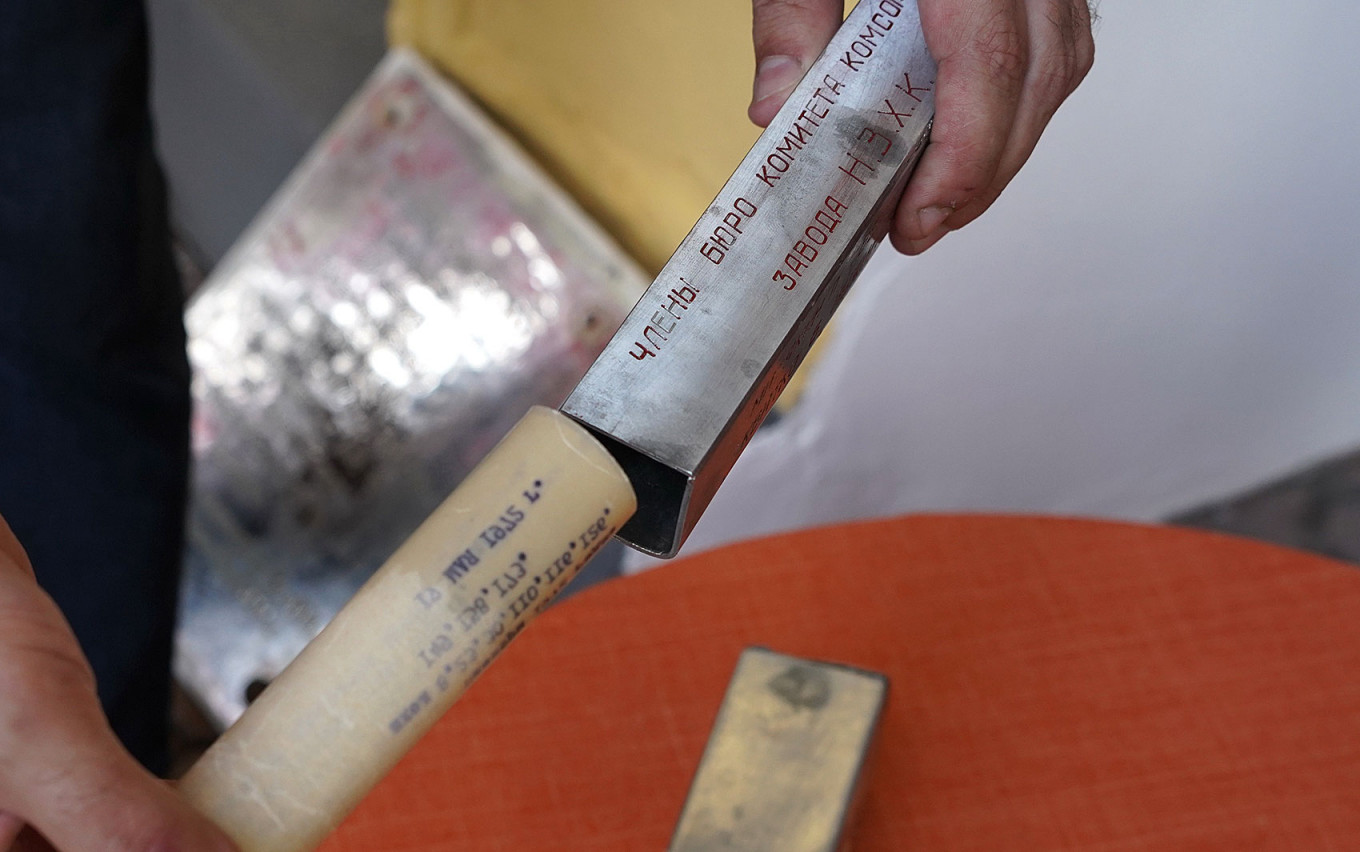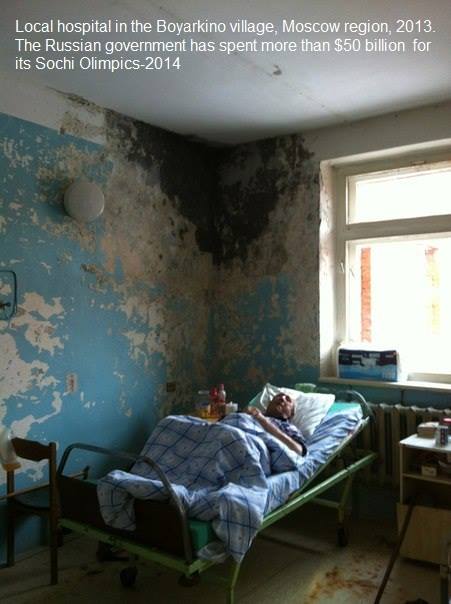
Welfare Chainsaw Massacre
Ivan Ovsyannikov (Russian Socialist Movement)
September 30, 2013
anticapitalist.ru
A “welfare chainsaw massacre” is exactly what we might call the government’s actions and statements over the last few months. The ruling class is once again attempting to pay for the latest uptick in the economic crisis from out of the pockets of workers.
On September 1, while speaking to students at the Far East Federal University, Putin announced the transition to a policy of austerity and reduced social spending. “The world economy has slumped a bit, and ours is hunkering down behind it,” the president said in his typical manner by way of explaining the upcoming unpopular measures. And he supported an earlier proposal, voiced by Minister of Finance Anton Siluanov, to replace the “maternity capital” program with “targeted assistance to poor families.”
However, a few days later, Dmitry Medvedev said that the maternity capital program would not be cancelled. “But it will be modified,” Minister of Labor and Social Affairs Maxim Topilin added in a whisper.
The fact that public opinion has been probed on such a sensitive point is quite significant. The maternity capital program is almost the only widely publicized social achievement of the Putin era. Putin has repeatedly stated it was his idea. And now this essential element of Putin’s social populism has been openly questioned.
No less provocative looking are the experiment with introducing social norms for electricity consumption (see Andrei Zavodskoi, “Cruel Economy”) and the de facto raising of the retirement age, which has long been discussed and is today closer than ever to realization. According to Deputy Primer Minister Olga Golodets, “We are not discussing raising the [retirement] age for any category of workers. We’ve gone another direction by promoting voluntary postponement of retirement. That is our principled position, and the government’s position.” However, such tricks are unlikely to mislead anyone.
The most scandalous revelations, however, are the statements made by government officials concerning labor relations. If, until recently, Mr. Topilin based his ministry’s decision not to index Russia’s penny-ante unemployment benefits on the fact that “at present there remains a high probability of finding employment in the labor market,” Mr. Medvedev has now said the exact opposite. He argues it is time to get away from the policy of preserving employment at all costs and not be afraid of cutting inefficient jobs: “The times all of us now face are not the easiest. […] Some people—perhaps a significant portion of the population—will have to change not only their jobs but also their professions and place of residence.” There is no doubt we have fallen on hard times, but the Prime Minister is clearly disingenuous when he talks about “all of us.” Russia’s ruling elite has no intention of depriving itself of jobs and handsome profits. So, in a conversation with François Fillon, Mr. Putin elegantly hinted that he would “not exclude” the possibility of seeking a fourth term as president.
But has the Russian economy “hunkered down” badly enough to warrant such painful experiments on the population? Isn’t “stagnation” only a plausible excuse for implementing the longstanding plans of the gentlemen from the Russian Union of Industrialists and Entrepreneurs?
As was reported in late August, the Ministry of Finance planned to save 1.1 trillion rubles [approx. 25 billion euros] over three years by eliminating the maternal capital program and reducing expenditures on pensions. At the same time, federal and regional budget expenditures on preparations for the 2018 World Cup should amount to 438 billion rubles, that is, almost half a trillion. The mass protests and riots in Brazil, sparked by excessive government spending on the 2014 World Cup, are still fresh in everyone’s minds. Russians could learn a lesson or two from Brazilians.
But maybe massive sports venue construction projects will generate many new jobs and return the taxpayer money spent on them? No, they will not. Unlike the great construction projects of the Soviet era, when funds were invested primarily in developing production, Olympiads, Universiades, and World Cups are, by definition, loss makers for national governments. Many analysts trace the current economic disaster in Greece to the 2004 Summer Olympics, which enriched transnational corporations while depleting public finances. The London Olympics have also been declared unprofitable. As for the 2014 Sochi Winter Olympics, its unprofitability has been recognized by nearly all serious experts, including Vnesheconombank chair Vladimir Dmitriev, who said in an interview with Vedomosti newspaper that “a serious percentage of [Olympics-related construction] projects are calculated to make a loss.” According to Dmitriev, “Given the current model and market trends, there are big problems with returns on investments. For example, one million square meters of hotel space are being built in the Imereti Lowland. When this space goes onto the market after the Olympics, a sixty percent occupancy rate will be hard to achieve. The costs of many projects have seriously risen as they have been implemented. […] For many sites, there is no complete project documentation or confirmed cost estimates. All this confirms our doubts.”
As for jobs, they really will be generated—for thousands of migrant workers. Federal Law No. FZ-108, adopted specifically for the World Cup, leaves no doubt about that. First, the law establishes special lightweight entry requirements for foreign workers involved in preparations for the World Cup. Second, it limits the applicability of a number of existing labor laws, effectively legalizing slavery. As the Confederation of Labor of Russia (KTR) declared in their statement on the subject, “The potential for runaway importation and recruitment of cheap labor, undermining the national labor market, and leading to a decrease in wages and legal guarantees in the area of labor relations, and an increase in the level of unemployment among the population, has been legally enshrined in the Russian Federation.”
The government could not care less about the fortunes of workers during the crisis, and it does almost nothing to hide it. How else can we account (to cite just one example) for Mr. Topilin’s proposal to deny free health care to all informally employed and unemployed people not registered with an employment bureau?
In light of the foregoing, the Kremlin’s actions aimed at reconciliation with the liberal opposition also become intelligible, as do unexpected initiatives to put the “against all” option back on voting ballots. The authorities fear that public discontent will grow and want to channel it in a direction that presents no danger to the ruling elite. Whether this political maneuver succeeds depends in part on the willingness of leftist political forces and trade unions to win over public opinion and make the fight against austerity measures as much of a mobilizing factor as it has been in Greece, Spain, and other countries facing the consequences of the capitalist system’s crisis.
Translated by the Russian Reader. Photo courtesy of deviantart.net












